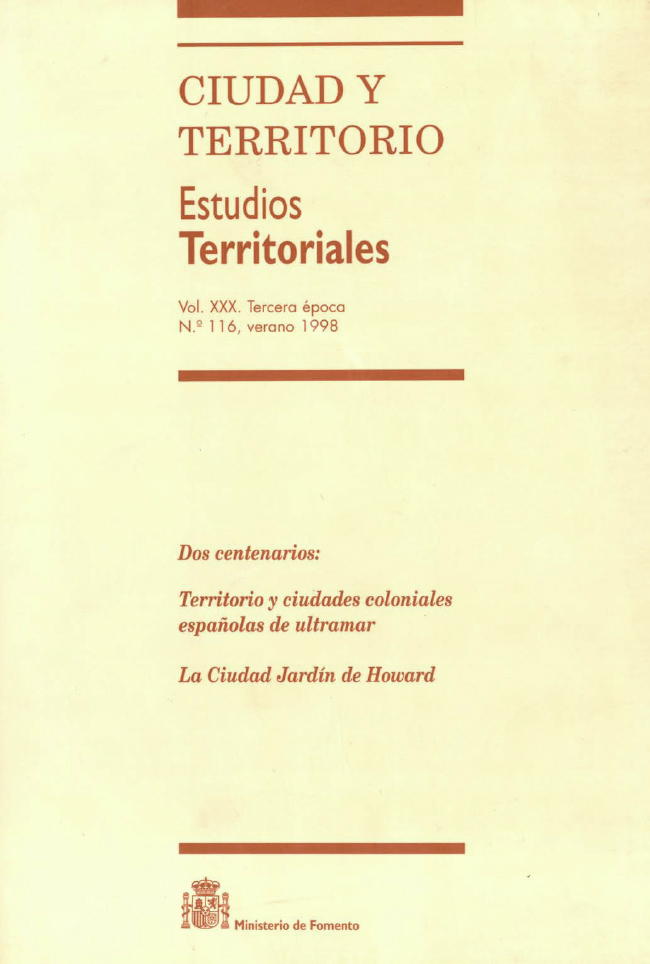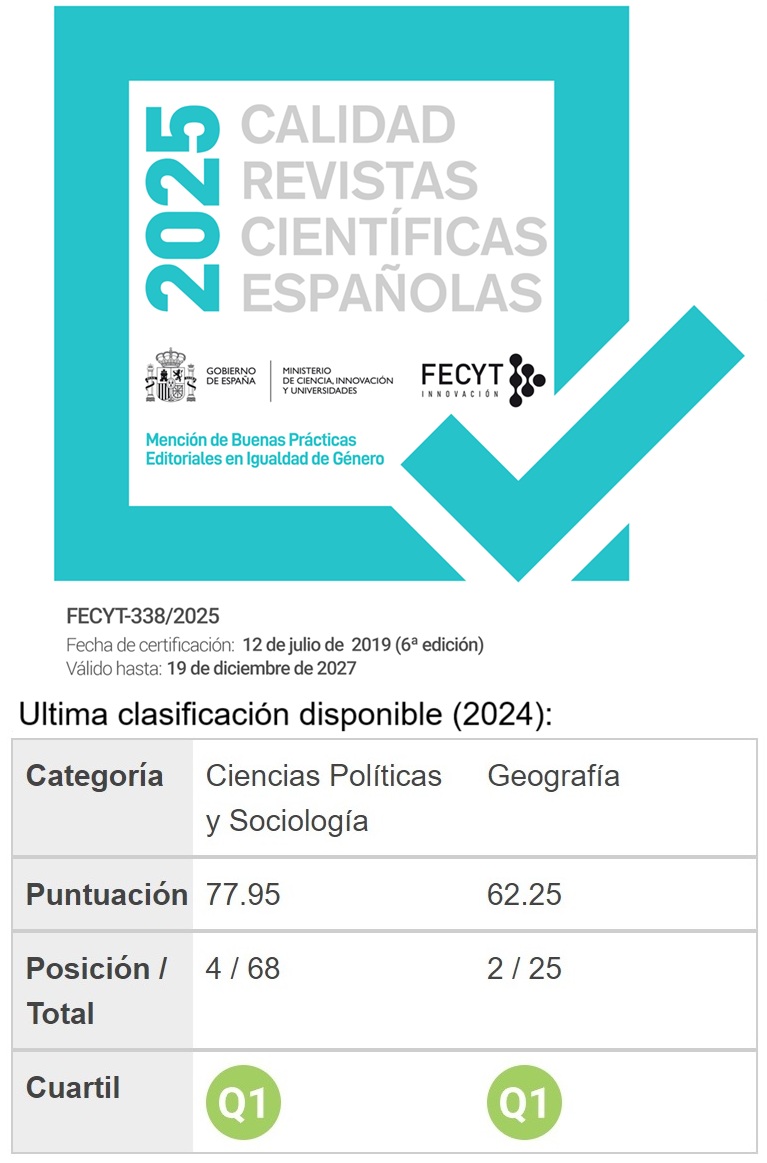El camino hacia la nación en las Antillas españolas
Palabras clave:
Colonialismo, Territorio, Cuba, Puerto RicoResumen
Se aborda la diferenciación histórica y económica de las dos islas antillanas, Cuba y Puerto Rico, que, partiendo de una economía forestal y ganadera ecológicamente equilibrada, se transformaron radicalmente desde el s. XVIII en economías dependientes de los monocultivos de las vastas plantaciones azucareras y del tabaco, aunque más equilibrada en Puerto Rico. La promoción de los criollos cubanos a la milicia, la nobleza y la política colonial abrió las reclamaciones de un gobierno con relativa autonomía política aunque dependiente de la Corona, propuestas que fueron reprimidas. La abolición de la esclavitud en Estados Unidos tras su Guerra de Secesión y la abolición definitiva en Puerto Rico (1873) y en Cuba (1886) vino a agravar más la situación de la burguesía criolla emergente respecto a la sordera peninsular. La primera guerra de independencia cubana de los diez años (1868-78) condujo a un pacto final que abriría una serie de libertades constitucionales y la representación política de Cuba en las Cortes españolas; tardía respuesta que no impidiría la reanudación de las revueltas libertadoras, mientras que Puerto Rico la obtendría demasiado tarde, en 1897, víspera de la Guerra hispano-norteamericana. El final de la Guerra encontraría dos sociedades extraordinariamente cambiadas y dinámicas.
Descargas
Descargas
Publicado
Cómo citar
Número
Sección
Licencia
Derechos de autor 1998 Josep María Fradera

Esta obra está bajo una licencia internacional Creative Commons Atribución-NoComercial-SinDerivadas 4.0.
Sin perjuicio de lo dispuesto en la legislación vigente sobre Propiedad Intelectual, y conforme a la misma, el/la los/las autor/a/es/as que publiquen en CyTET cede/n a título gratuito, de modo no exclusivo y sin límite temporal al Ministerio de Transportes, Movilidad y Agenda Urbana los derechos para difundir, reproducir, comunicar y distribuir en cualquier formato actual o futuro, en papel o electrónico, la versión original o derivada de su obra bajo licencia de Creative Commons Reconocimiento-NoComercial-SinObraDerivada 4.0 Internacional (CC BY-NC-ND 4.0), así como para incluir o ceder a terceros la inclusión de su contenido en índices, repositorios y bases de datos nacionales e internacionales, con referencia y reconocimiento en todo caso de la autoría del mismo.
Además, al realizar el envío, el/la los/las autor/a/es/as declara/n que se trata de un trabajo original en el que se reconocen las fuentes que han sido utilizadas en su estudio, comprometiéndose a respetar la evidencia científica y a no modificar los datos originales para verificar o refutar una hipótesis de partida; que el contenido esencial del mismo no ha sido publicado previamente ni se publicará en ninguna otra obra o revista mientras esté en proceso de evaluación en la revista CyTET; y que no se ha remitido simultáneamente a otra publicación.
Los autores deben firmar un Formulario de Cesión de Derechos, que les será enviado desde la Secretaría de CyTET una vez se acepte su artículo para ser publicado.
Con el objetivo de favorecer la difusión del conocimiento, CyTET se adhiere al movimiento de revistas de Open Access (OA) y entrega la totalidad de sus contenidos a diversos índices, repositorios y bases de datos nacionales e internacionales bajo este protocolo; por tanto, la remisión de un trabajo para ser publicado en la revista presupone la aceptación explícita por parte del autor/a de este método de distribución.
Se anima a las/os autoras/es a reproducir y alojar sus trabajos publicados en CyTET en repositorios institucionales, páginas web, etc. con la intención de contribuir a la mejora de la transferencia del conocimiento y de la citación de dichos trabajos.








 Enlace a CyTET en Linkedin
Enlace a CyTET en Linkedin